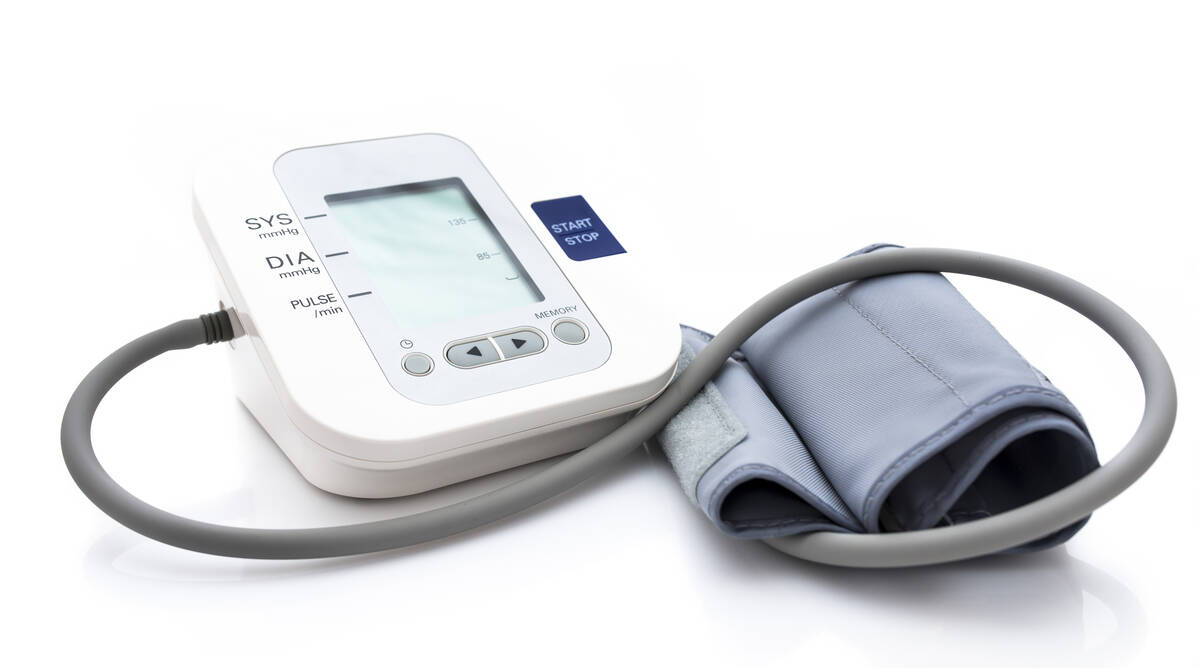New tool more accurately calculates cardiovascular risk
For years, the question of whether to take medication to lower high blood pressure had been partly answered by a tool that calculated someone’s 10-year risk of having a heart attack or stroke.
But new equations, which take into account both 10-year and 30-year predicted risk for cardiovascular disease, suggest that even if short-term risk is low, the long-term risk often remains high for some people, according to a study published in the journal Hypertension.
“It turns out a lot of people have a low risk for heart attack and stroke over 10 years but a high risk over the next 30 years,” said Dr. Paul Muntner, the study’s lead author and a visiting professor at the University of Alabama at Birmingham. “So, our conclusion is that it may be worthwhile for people to understand the risk for both 10 and 30 years when considering whether to start taking medication.”
Nearly half of U.S. adults have high blood pressure, also called hypertension. It can damage blood vessel walls over time and can lead to heart attack, stroke, heart failure, kidney disease and other health problems.
When the systolic blood pressure, or top number, is 130-139 or the diastolic, or bottom number, is 80-89, this is stage 1 hypertension. Stage 2 hypertension is diagnosed when the systolic number is 140 or higher or the diastolic number is 90 or higher.
New tool to assess risk
Healthy lifestyle changes and medication are recommended for all adults with stage 2 hypertension. For stage 1, the 2017 American Heart Association and American College of Cardiology blood pressure guidelines recommend taking into account both blood pressure level and risk of atherosclerotic cardiovascular disease, which involves plaque buildup in artery walls, when deciding whether to initiate blood pressure-lowering medications alongside lifestyle changes.
But how to determine the risk for cardiovascular disease has changed. Under the 2017 guidelines, atherosclerotic cardiovascular disease risk was considered high if a person met one or more of five conditions. These included being 65 or older, having diabetes, chronic kidney disease, a history of cardiovascular disease or a 10 percent or greater risk of having a heart attack or stroke within 10 years, as measured by the pooled cohort equations, or PCEs.
PCEs estimate a person’s 10-year risk for heart attack and stroke based on risk factors that include age, gender, race, cholesterol levels, systolic blood pressure, and whether a person takes blood pressure-lowering medication, has diabetes or smokes. These equations were developed using data from the 1980s through the 2000s.
Since then, new research and treatment advances have emerged that could affect the risk calculations. Researchers now understand that hypertension also increases the risk for heart failure, an outcome not included in the PCEs. And the use of statins, a class of cholesterol-lowering medication, has since become widespread, partly reducing cardiovascular risks for many people.
So, in 2023, the AHA published a new set of cardiovascular risk prediction equations, known as PREVENT. The new calculator predicts the risk of heart failure in addition to the risk of plaque-related cardiovascular disease over the next 10 years in people ages 30 to 79 and over the next 30 years in people ages 30 to 59.
The new tool incorporates kidney function, blood sugar level and the use of cholesterol-lowering medication. It also accounts for social determinants of health such as income, education, employment, where a person lives, whether they have access to transportation or live in a crowded or single-parent home. PREVENT calculations also are sex-specific and do not include race.
“Race was removed as a variable since race is a social construct, not a biological factor,” said Dr. Nia Schwann Mitchell, an associate professor of general internal medicine at Duke University School of Medicine. “PREVENT is more accurate because it uses more recent data.”
Power of prevention
In the new study, researchers compared 10-year cardiovascular disease risks using both types of risk equations for adults 30 to 79 with stage 1 hypertension. They also calculated the 30-year risk for adults with high blood pressure who were 30 to 59 years old.
The findings showed that among 1,703 adults with stage 1 hypertension, the average 10-year risk of having a heart attack or stroke was 5.4 percent using the PCE tool, compared with 2.9 percent using the PREVENT calculator.
However, when risks three decades out were calculated, a different story emerged.
Participants under age 60 with stage 1 hypertension who had a high 10-year risk of heart attack or stroke as calculated by the PCE tool faced a high 30-year risk of heart attack, stroke or heart failure using PREVENT — even if PREVENT had found their 10-year risk to be low.
The higher 30-year risk suggests blood pressure-lowering medication in addition to lifestyle changes might be beneficial in some cases, even if 10-year risks are low, Muntner said.
“There may be value in having a discussion between patients and health professionals about individual risks for having a heart attack, stroke or heart failure over both the next 10 years and the next 30 years, because early treatment to lower blood pressure has big effects on lowering the risks of developing heart disease over a person’s lifetime,” he said.
Medication isn’t the only way to lower blood pressure and might not always be necessary, Muntner said. “All people, before starting blood pressure-lowering medications, should try lifestyle changes such as reducing salt intake, exercising more, losing weight if they are overweight and reducing alcohol consumption. Those are well-known lifestyle factors that can lower blood pressure.”
Not smoking, eating a healthier diet, getting enough sleep, lowering cholesterol levels and reducing stress can also help reduce blood pressure, according to the AHA.


















